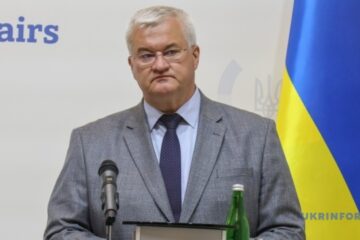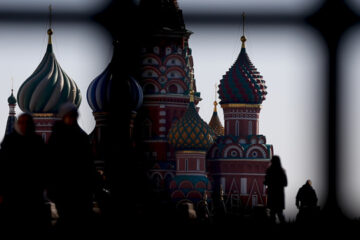
The liquid assets of the National Welfare Fund of the Russian Federation (NWF), set up under Vladimir Putin, may be completely exhausted in 2026 if oil prices remain low and the ruble remains strong.
As per The Moscow Times, this is predicted by Russian economists in a report on the implementation of the federal budget for 2025, Ukrinform reports.
According to available data, as of June 1, the NWF had RUB 2.8 trillion ($31 billion) of unspent money, which is the minimum level since 2019. Over the years 2022-2024, the reserves plunged from $113.5 billion to $37.4 billion.
In 2025, the Russian Finance Ministry spent another RUB 35.9 billion ($400 million) from the National Wealthfare Fund to cover the budget deficit in May, as well as RUB 532 billion ($5.9 billion) on injections into state corporations and projects. In particular, RUB 300 billion ($3.3 billion) was channeled to the Moscow-St. Petersburg high-speed railway, RUB 6.5 billion ($72 million) to purchase aircraft, and another RUB 1 billion ($11 million) to buy metro carriages for St. Petersburg. About RUB 50 billion ($556 million) was spent on classified projects.
As a result, the Fund has only 153.7 billion yuan ($21.2 billion) of foreign exchange assets left – the absolute minimum since its inception in 2008. Its gold reserves have dropped to 139.5 tons, although in the pre-war period, they exceeded 400 tons.
According to experts, the liquid assets remaining in the NWF still allow the Russian Ministry of Finance to compensate for losses from the fall in oil and gas revenues, but in the event of a protracted crisis, the reserve may be exhausted in less than a year.
It is noted that the Russian government is forced to review the budget: instead of the expected RUB 10.9 trillion ($120 billion) in oil revenues, the outlook has been reduced to RUB 8.3 trillion ($91 billion), while the budget deficit may reach 3.8 trillion ($42 billion). Therefore, the Fund’s assets are set to be used again, it is planned to withdraw RUB 447 billion ($4.9 billion).
There is also a risk of falling short on income tax: with a target of RUB 4 trillion ($44 billion), business profits have already decreased by 34% over the year. This, according to experts, is a more realistic threat to the budget than a drop in oil revenues.
As Ukrinform reported, the Foreign Intelligence Service said Russian authorities were trying to hide the real scale of the economic recession over the war against Ukraine and keep the economy afloat with the help of the remnants of reserves.
Source: Putin's Reserve Fund may exhaust itself in 2026 - outlook



